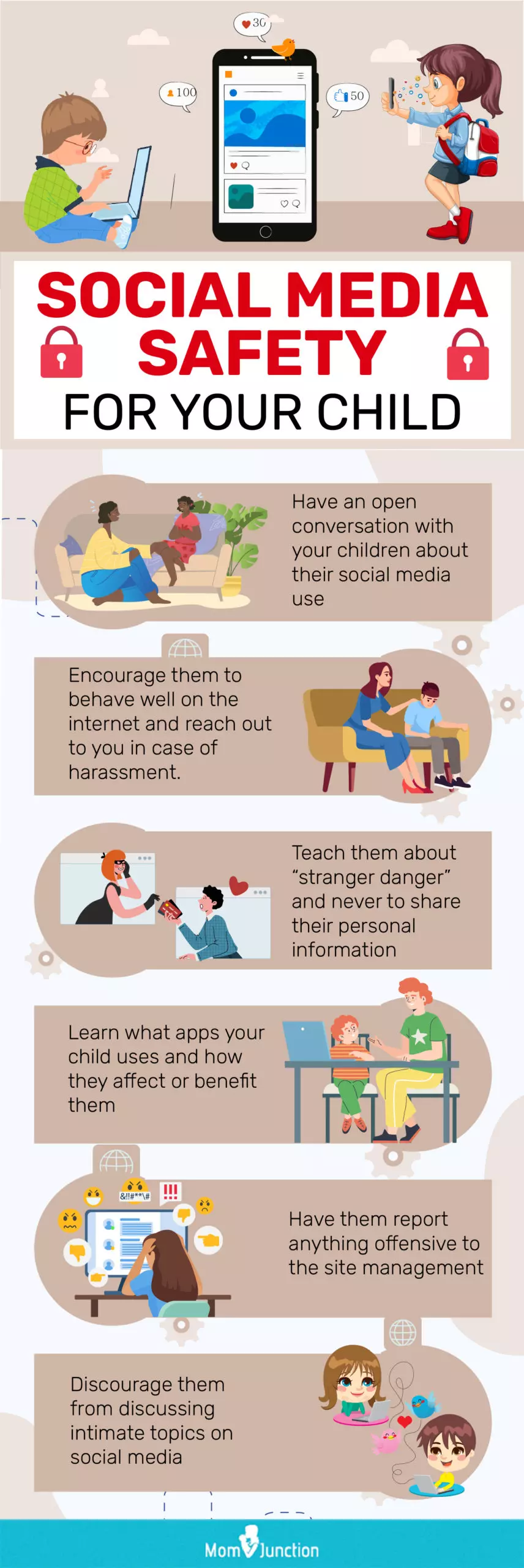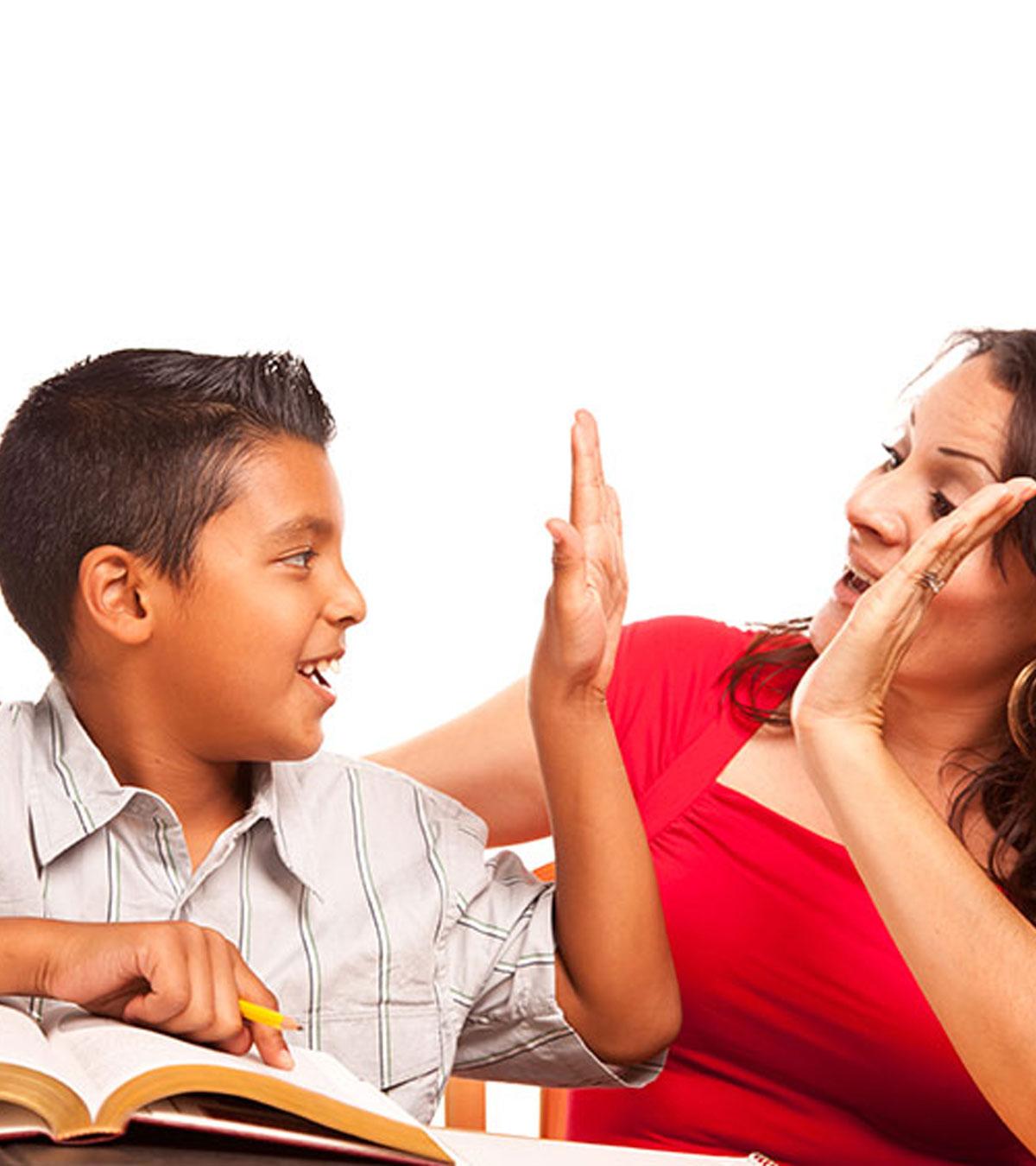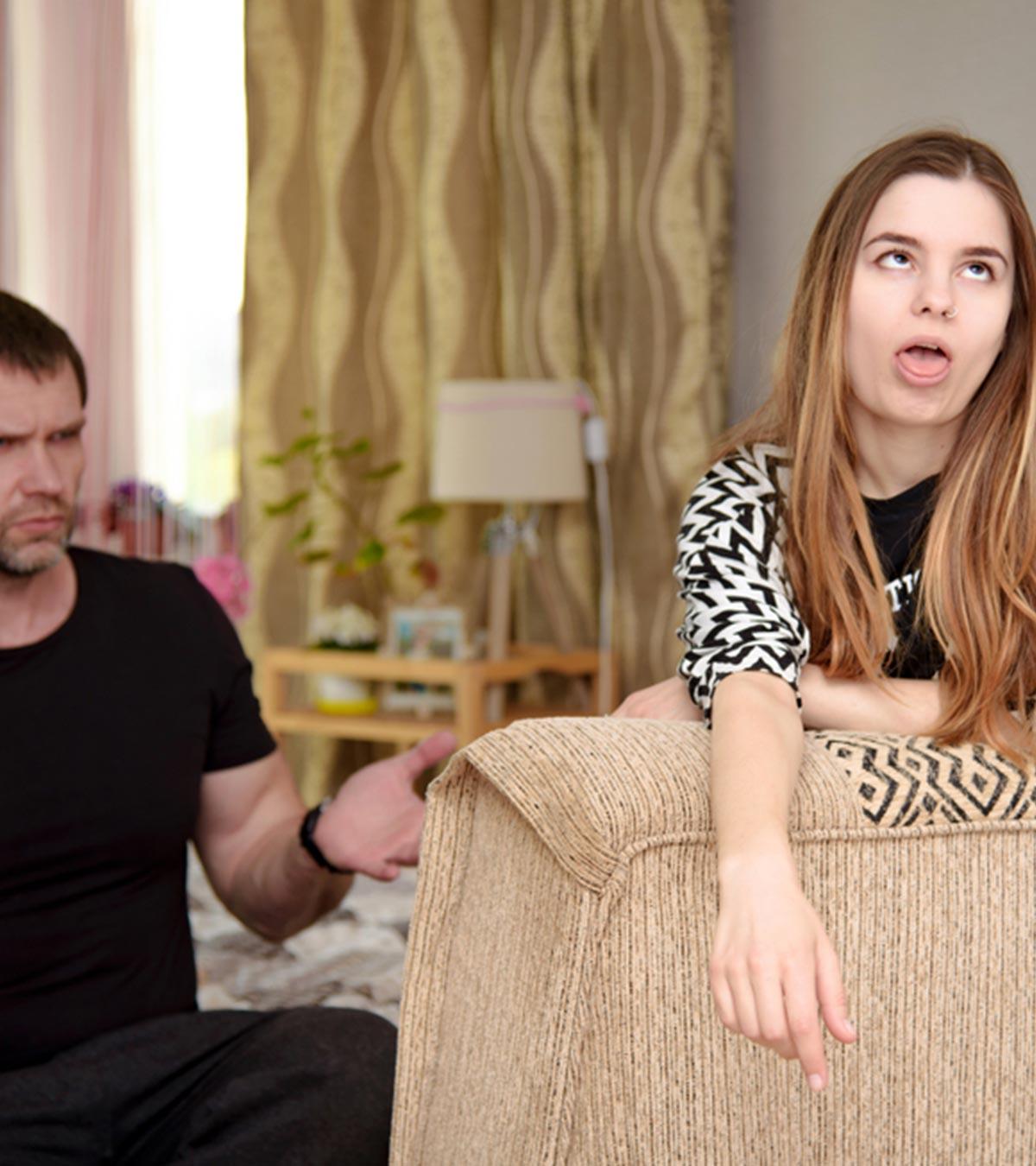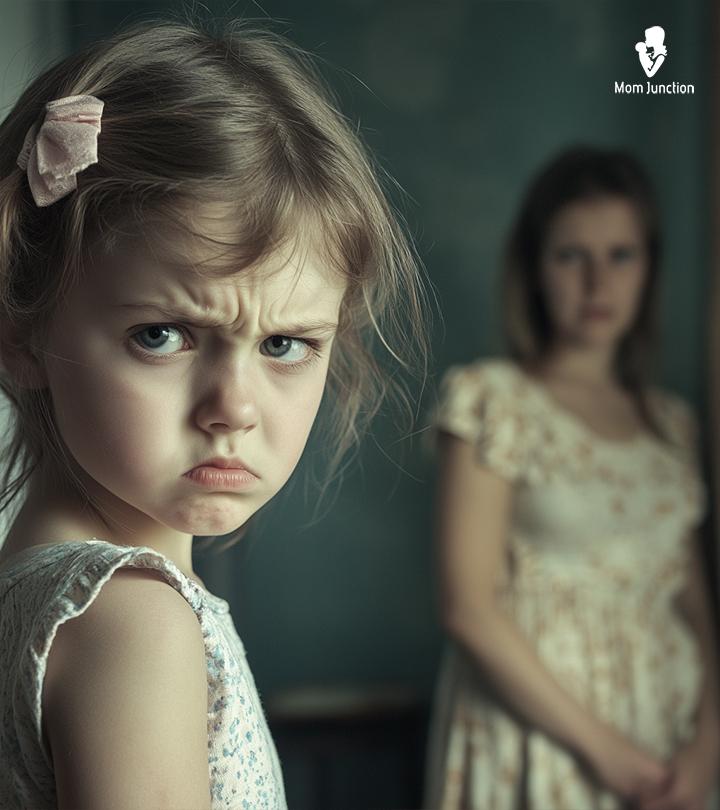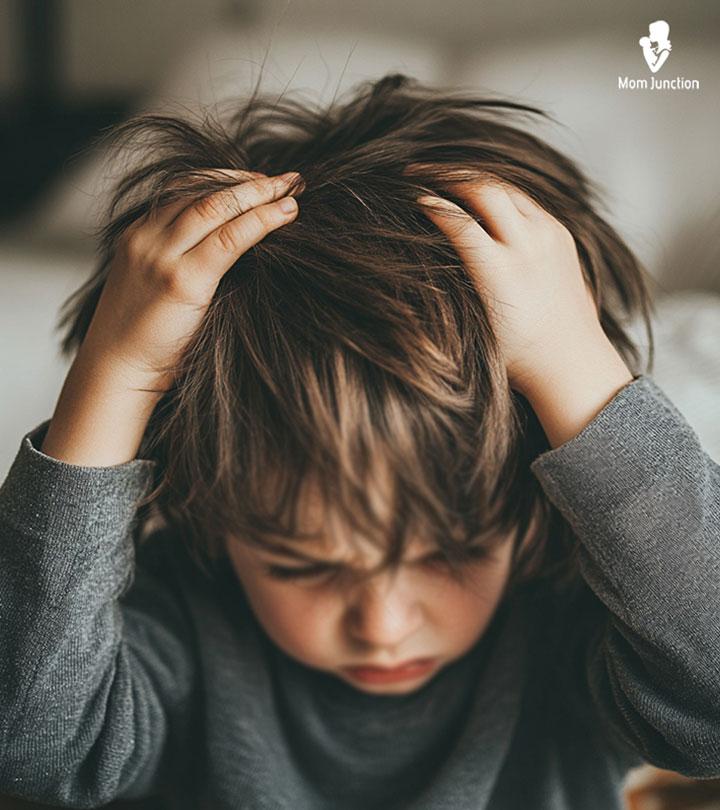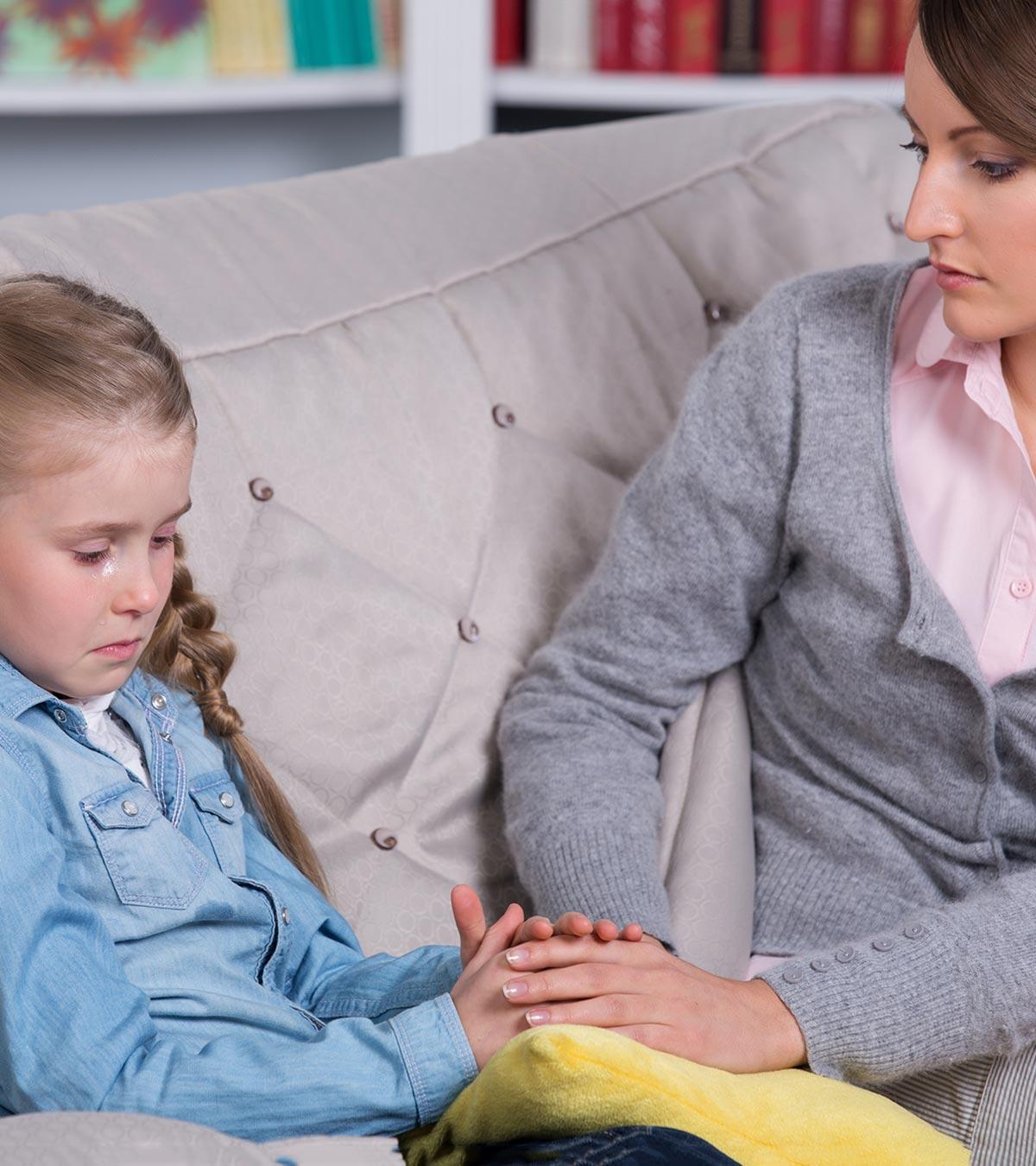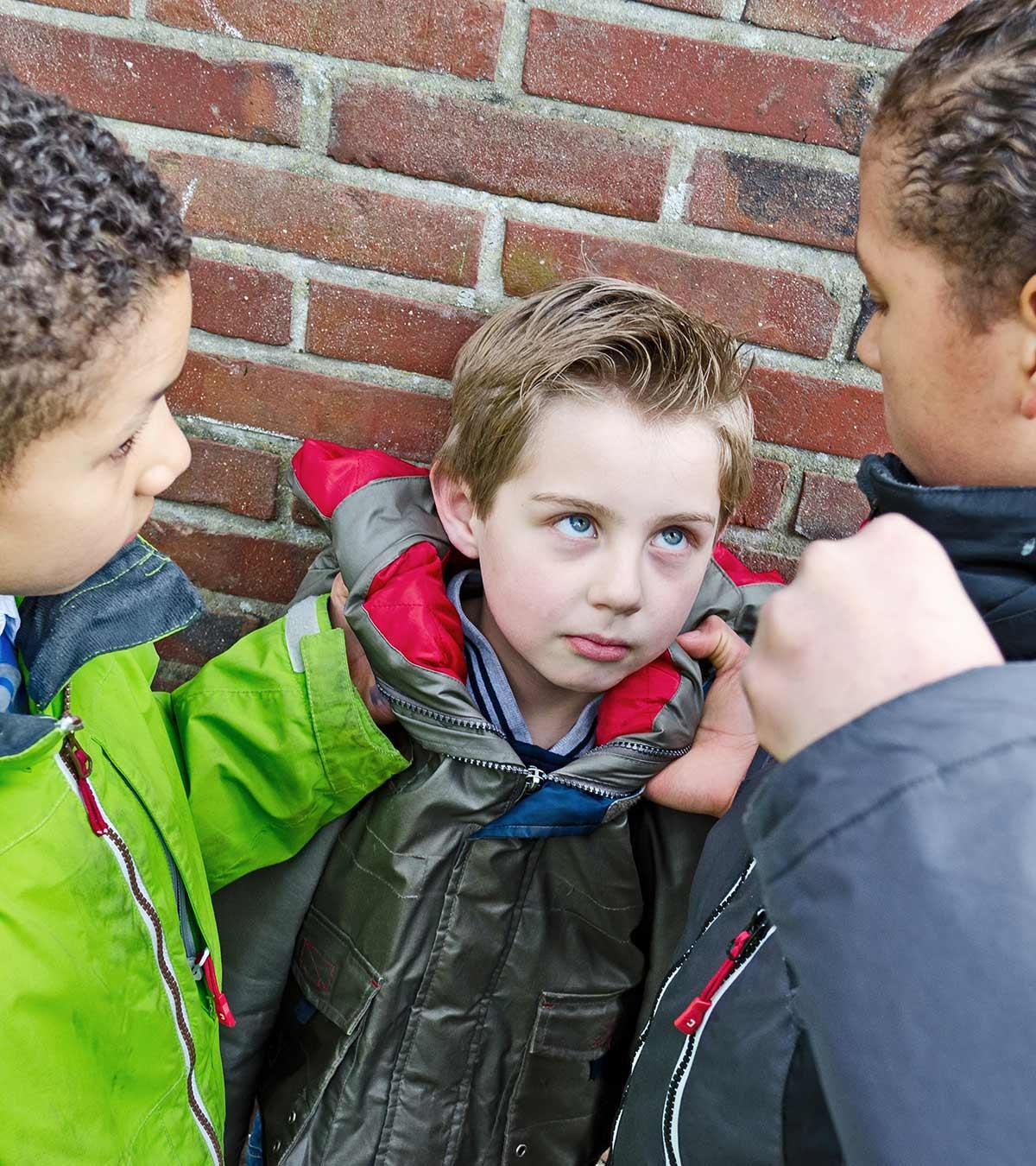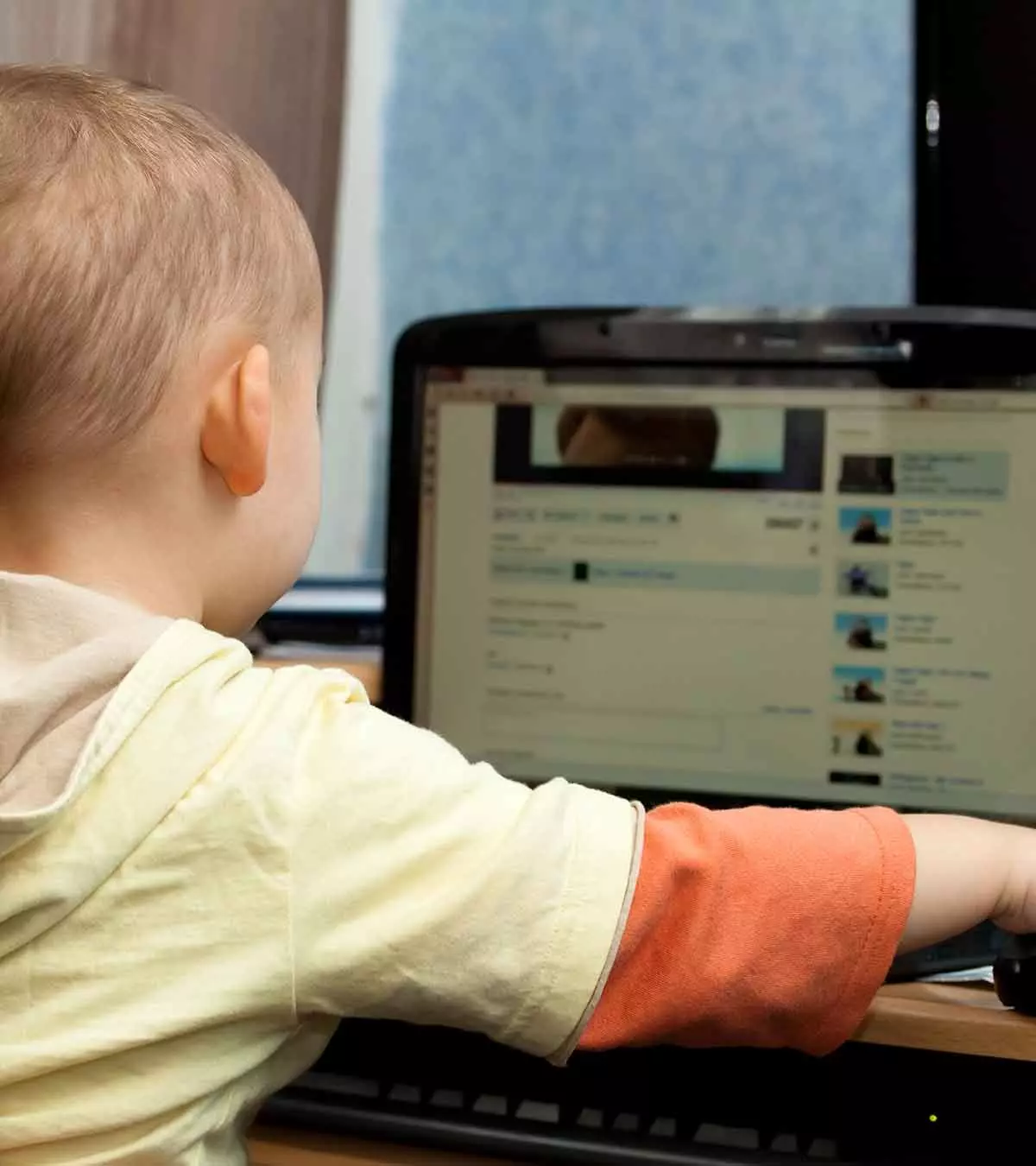
Image: ShutterStock
Social media is a fast-emerging platform that has changed how people communicate and connect. Since these networking platforms are easy to use and entertaining, they have attracted the attention of most children. Therefore, it becomes essential to discuss the effects of social media on children. It’s important for parents to understand both the good and bad effects of social media to guide their children in the digital world and create a healthy online space. Social media, if used wisely, is a good platform to interact, learn, communicate, and have fun; however, if misused or excessively used, it may lead to cyberbullying, anxiety, and health problems. So, before allowing your children to access this digital technology, you should be aware of its functionalities, privacy settings, and age limit. This post discusses social media’s positive and negative effects and tips to keep your children safe.
Key Pointers
- Social media can be a useful tool for interaction, learning, communication, and entertainment.
- Misuse or excessive use of social media can lead to negative consequences such as cyberbullying, anxiety, and health problems.
- Parents should supervise their child’s use of social media before adolescence to avoid adverse effects.
- Children may come across inappropriate content on social media that can affect their thinking and cyberbullying is a prevalent issue that can cause fear and shame in victims.
- Excessive time spent on social media can lead to addiction and hinder the development of interpersonal relationships.
- Initiating a healthy conversation with your child can assure them that parental involvement is for their safety and not an invasion of privacy.
- If necessary, involve the police or child protection services if you suspect your child is being harassed.
What Is The Right Age For Children To Be On Social Media?
Image: Shutterstock
Do not allow your child to access social media before adolescence independently. Even after adolescence, the age limit for using different networking sites will differ to avoid adverse effects (1).
- Children of 13 years and above: Facebook, Twitter, Tiktok, and Youtube
- Children of 16 years and above: Whatsapp, LinkedIn, and Myspace
- Children of 18 years and above: Monkey, MeetMe, and Tagged
According to a Pew Research Center survey, approximately one-third of teenagers chose Snapchat (35%) and YouTube (32%) as their preferred online platforms. Instagram was a primary choice for 15% of teenagers, while only 10% reported using Facebook frequently
What Are The Effects Of Social Media On Children?
According to Pew Research Center’s last survey, 95% of teenagers have easy access to smartphones, and 45% are almost online all the time.
Therefore, controlling their usage can become challenging (2). Before trying to control their social media activities, parents need to be aware of its positive and negative effects.
Positive Effects Of Social Media On Children
Social media helps you link up with people all over the world. The positive influence of social media on children include (3) (4):
- Helps to connect with extended family and friends
Image: Shutterstock
- Helps develop better perspectives on various issues
- Enables them to learn new things, exchange ideas, and hone their networking skills
- Provides an effective platform for enhancing your child’s knowledge through online education
- Helps children get involved in charitable activities and campaigns
- Motivates children to get better at communication and encourages freedom of self-expression
- Helps connect with educators and facilitators from different parts of the world
- Get emotional support from people during difficult times
- Facilitates the development of technical expertise and practical understanding of technology in your child
- Social media influencers can serve as positive role models for children, promoting healthy habits, positive attitudes, and inspiring creativity.
While there can be many topics among teenagers, the survey conducted by Pew Research Center on teenagers’ experiences on social media platforms identified some popular topics that they usually post about. The graph below shows that about half of teens (49%) post about their accomplishments, followed by family posts (44%) and posts about feelings and emotions (34%). Other topics include posts on dating life, personal problems, and political views.
Topics teens commonly post on social media
Source: Pew Research Center Point to Ponder
Point to PonderNegative Effects Of Social Media On Children
Young minds are moldable, and social media can affect how your child thinks or behaves. At their age, they are innocent and cannot discern good and bad. Some common adverse effects may be (5) (6):
- Social media is a vast platform, and one cannot control the amount of information available here. Therefore, children may bump into inappropriate or harmful content that may affect their thinking.
- Online communication has led to a growing trend of cyberbullying, particularly on social media and messaging platforms. It spreads fear and shame among people and may have undesirable effects on children.
Image: Shutterstock
- Makes children less productive because much of their time is spent without doing anything important, and they become addicted. These addictions may adversely affect their physical health.
- Excessive use of technology and the internet, including teen social media addiction, gaming addiction and internet addiction, can hinder children’s productivity by consuming significant amounts of their time without engaging in meaningful activities. These addictions may adversely affect their physical health.
- Excessive social media use may also affect your child’s ability to develop interpersonal relationships.
 Caution
CautionJackie Darby, a licensed clinical psychologist and certified group psychotherapist from Washington, District of Columbia, says, “The first area of risk of the apps is that they ask for location permission which can put the individual at risk of being tracked. The second area of risk is that the person can give out information, which makes it easy for hackers to steal their identity. The third risk is toward self-esteem. Studies have shown that overuse of social media can lead to lower levels of self-esteem in children because they are comparing themselves to unrealistic images. The last area of risk is the exposure to adult content.”
How To Help Your Children Be Safe On Social Media?
Image: Shutterstock
Since social media has considerable adverse effects, parents need to be vigilant about the safety of their children. “The best way to give advice to children about social media is to remind them that it is a tool to connect with others. It is not the end all be all for their existence. Additionally, help them understand the safety measures that are in the apps to stay protected from people. Scare tactics should not be used because they can be traumatizing to the child,” recommends Darby.
The following guidelines could be of help (3) (7):
- Talk to your children and help them understand that your involvement in their social media interactions is not about invading their privacy but ensuring their online safety. Educate them about issues such as fake news, and cybercrimes including online grooming, and their repercussions.
- It is important to educate your children about cyber ethics and emphasize the significance of practicing good behavior while using social media platforms. Additionally, they should be made aware of the risks associated with cybersecurity and be encouraged to report any incidents of harassment, cyberbullying, or cyberstalking immediately.
- It is crucial to prioritize cyber wellness and protect your child’s online identity by ensuring they do not engage with strangers or disclose personal information on social media platforms.
- Research the popular apps your children may be using and learn their functionalities so you may know how it affects them.
Annette Lyon, a celebrated author and mother, reveals her approach to engaging with her children’s social media experiences. She says, “I talked with my kids about what they did on their phones. I downloaded apps I had zero interest in but used them anyway to learn how they worked. That meant we could talk about the apps, the dangers, as well as fun stuff, and have meaningful conversations about safety and social media. When I shared something fun, they’d share something in return. Not always on the same day. But the door was open, and they knew it (i).”
- Ensure that children report to the site management about anything offensive they receive through online viewers.
- Encourage your children not to discuss about intercourse or lovemaking with anyone on social media.
- Alert them about scams on online platforms.
- If you suspect your child is being harassed, contact the police or the child protection center.
- Remind your children to take breaks from social media to keep a good balance between online and offline activities.
Frequently Asked Questions
1. Is social media toxic?
The effect of social media on children may be toxic in case of excessive usage. There could even be adverse effects of advertisements on children. According to the research, more than three hours of social media in a day may cause anxiety and depression in teens. Moreover, the life that people portray on social media may lead to comparisons, causing low self-esteem in children. In addition, children keeping their phones by their sides while sleeping are often distracted by their notifications and bright light, leading to poor sleep (8).
2. What are social media recommended settings for children’s safety?
The social media privacy settings for children include (9) (10):
- Screen name: Use your full name, first name, or a pseudonym.
- Profile picture: Choose a profile picture that represents you positively. You may even choose a graphical picture instead.
- Contact information: It is safe to create a separate email address for social media profiles.
- Identity: Create an identity you want to portray publicly by customizing your information.
- Manage the people who can view the posts, comment on them, or tag them.
3. How does social media affect children’s mental health?
Excessive internet and social media use have been linked to various mental health issues in children such as depression, poor sleep, increased physiological arousal, decreased attention, hyperactivity, aggression, antisocial, fearful behavior, social isolation, and anxiety about conforming to social norms (12).
4. Is social media good for students?
As with any other technology, social media has no absolute labeling, terming it as either good or bad. When used judiciously and to enhance knowledge, it is a great medium for sharing, learning, and exploring new information. However, there is no denying that it may harm students due to its potential misuse and addiction.
5. What are the potential long-term effects of social media use on children’s development?
Excessive social media use may trigger mental health issues such as anxiety, depression, loneliness, and low self-esteem. In addition, using social media at bedtime can lead to sleep disruption and impact a child’s academic performance. However, monitoring and encouraging healthy online habits can assist to reduce these effects and promote positive development (11).
6. What parental controls are available for social media?
Several parental control options are available for social media, depending on the platform and device used. These include platform-specific functions like content filters, privacy settings, and the ability to block particular websites or apps.
7. How has the use of social media among children changed over the years?
According to a study, the influence of media on teens and children has increased significantly, notably in the two years following the COVID-19 outbreak, surpassing the growth experienced in the previous four years. The study noted that children aged 8 to 12 years spend an average of five and a half hours on screens daily (13).
8. What are signs that my child might be having trouble with social media?
Some signs include avoiding family activities, being secretive about what they do online, and mood changes when using social media. Parents should watch for these signs and talk openly about their online experiences.
A big part of good parenting today is ensuring your child spends quality time on social media websites and reaps positive outcomes. Keep a tab on the effects of social media on children and be watchful of the sites they access. Impart digital literacy by talking about the pros and cons of these networking sites. You may visit a therapist if you find your child too withdrawn, moody, or excited due to a lack of social media access. Let’s make social media a fun, positive experience for children and ensure that their digital footprints don’t damage their online reputation or image.
Infographic: How To Help Children Be Safe On Social Media
You shouldn’t completely block social media from your children’s lives, as it is essential to stay updated with the world. But how do you protect them from the evils of the internet? This infographic has a few pointers to help you enlighten your children on social media safety. Illustration: Momjunction Design Team
Illustration: The Impact Of Social Media On Children: Positive & Negative
Image: Stable Diffusion/MomJunction Design Team
Explore the complex dynamics between parents, children and social media including the possible challenges faced, ways to control your childs social media presence and many more.
Personal Experience: Source
MomJunction articles include first-hand experiences to provide you with better insights through real-life narratives. Here are the sources of personal accounts referenced in this article.
i. I gave my kids iPhones & social media. I have no regrets.https://medium.com/my-turn-at-the-mic/i-gave-my-kids-iphones-social-media-i-have-no-regrets-9fc03b849fcc
References
- At what age can my child start social networking?
https://www.internetmatters.org/resources/what-age-can-my-child-start-social-networking/ - Teens Social Media and Technology 2018.
https://www.pewresearch.org/internet/2018/05/31/teens-social-media-technology-2018/ - Teaching Kids to Be Smart About Social Media.
https://kidshealth.org/en/parents/social-media-smarts.html - Social Media and Mental Health.
https://www.helpguide.org/articles/mental-health/social-media-and-mental-health.htm - The Effects of Social Media on children.
https://www.oercommons.org/authoring/25400-the-effects-of-social-media-on-children/view - Cyberbullying: What is it and how to stop it.
https://www.unicef.org/end-violence/how-to-stop-cyberbullying - How to keep your child safe online.
https://www.unicef.org/parenting/child-care/keep-your-child-safe-online - What doctors wish patients knew about social media’s toxic impact.
https://www.ama-assn.org/delivering-care/population-care/what-doctors-wish-patients-knew-about-social-media-s-toxic-impact - Using social networks safely.
https://edu.gcfglobal.org/en/internetsafetyforkids/using-social-networks-safely/1/ - Setting up social media.
https://www.internetmatters.org/connecting-safely-online/advice-for-parents/do-the-basics-on-social-media-to-support-young-people/setting-up-social-media/ - Effects of Social Media On Children.
https://health.clevelandclinic.org/dangers-of-social-media-for-you - Emily Frith; (2017); Social media and children’s mental health: a review of the evidence.
http://epi.org.uk/wp-content/uploads/2018/01/Social-Media_Mental-Health_EPI-Report.pdf - Constantly Connected: How Media Use Can Affect Your Child.
https://www.healthychildren.org/English/family-life/Media/Pages/Adverse-Effects-of-Television-Commercials.aspx
Community Experiences
Join the conversation and become a part of our nurturing community! Share your stories, experiences, and insights to connect with fellow parents.
Read full bio of Catherine Mok
- Dr. Jackey Darby is a licensed psychologist and certified group psychotherapist with three years of experience. She works as a psychologist at American University and owns a practice The Unconscious Shift, a mental health wellness consulting agency. Dr. Darby completed her MA in Counseling Psychology from the Chicago School of Professional Psychology and her PsyD from the American School of Professional Psychology.
 Dr. Jackey Darby is a licensed psychologist and certified group psychotherapist with three years of experience. She works as a psychologist at American University and owns a practice The Unconscious Shift, a mental health wellness consulting agency. Dr. Darby completed her MA in Counseling Psychology from the Chicago School of Professional Psychology and her PsyD from the American School of Professional Psychology.
Dr. Jackey Darby is a licensed psychologist and certified group psychotherapist with three years of experience. She works as a psychologist at American University and owns a practice The Unconscious Shift, a mental health wellness consulting agency. Dr. Darby completed her MA in Counseling Psychology from the Chicago School of Professional Psychology and her PsyD from the American School of Professional Psychology.
Read full bio of Pragya Bhargavi
Read full bio of Swati Patwal
Read full bio of Apoorva K











